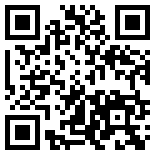江門(mén)美聯(lián)英語(yǔ)小編希望通過(guò)經(jīng)典的商務(wù)英語(yǔ)會(huì)話場(chǎng)景反映出各種商務(wù)活動(dòng)中語(yǔ)境真實(shí)、對(duì)話生動(dòng),、語(yǔ)言地道的特點(diǎn),,幫助學(xué)員熟悉掌握,有利于學(xué)員們?cè)谔岣哂⒄Z(yǔ)水平的同時(shí),,豐富自己的商務(wù)知識(shí),,本篇是招聘廣告英語(yǔ)怎么說(shuō)。
學(xué)習(xí)英語(yǔ)口語(yǔ)的童鞋關(guān)心的還是口語(yǔ)方面的交流,,口語(yǔ)交流的前提是必須得有充足的口語(yǔ)句子作為基礎(chǔ),。
你能告訴我為什么你答復(fù)了我們的廣告嗎? Can you tell me why you replied to our advertisement? Can you tell me why you responded to our advertisement? Can you tell me why you answered our advertisement? 他正在物色人才,。 He is looking out for talents. He is scouting for talents. He is looking for qualified persons. He is choosing talents. He is seeking out a person of ability.
掌握了以上關(guān)于招聘廣告英語(yǔ)怎么說(shuō)的常用句型,,讓我們更進(jìn)一步進(jìn)行對(duì)話練習(xí)吧。
A: How do you want to advertise the opening? B: I've had good responses from the Beijing Times' help-wanted ads.
A: All right. I suggest posting the ad Friday though Monday. B: OK. Friday is the big day for job ads.
A: And job seekers will certainly check the paper over the weekend. B: Let's post on the Internet, too. We'll get a better response. I'll post the ads. I know some good sites.
A: Such concern for the company, Craig ! I'm impressed. C: Don't be fooled, he's just lazy. If we don't replace Donna, he knows he'll have to work harder.
英語(yǔ)基礎(chǔ)能力偏弱的同學(xué)可以根據(jù)以下的翻譯進(jìn)行對(duì)比訓(xùn)練,,基礎(chǔ)較好的學(xué)員也不要松懈,,看看你的理解和以下江門(mén)美聯(lián)英語(yǔ)為你提供的招聘廣告英語(yǔ)怎么說(shuō)翻譯是否有偏差吧。 A:你打算怎樣替這個(gè)職位做廣告,? B:以前我們?cè)凇毒┤A時(shí)報(bào)》上刊登招聘廣告,,反應(yīng)不錯(cuò)。
A:好的,,我建議把廣告從星期五登到下星期一,。 B:好,星期五是刊登招聘廣告的黃金時(shí)間啊,。
A:求職者一定會(huì)在周末翻看報(bào)紙的,。 B:也把招聘廣告登在網(wǎng)上吧,這樣我們可以得到更多的回應(yīng),,我去刊登,,我知道一些不錯(cuò)的網(wǎng)站。
A:這么關(guān)心公司啊,,克雷格,!你真是令我欣賞。 C:別傻了,,他只是懶惰罷了,。如果我們不找人遞補(bǔ)唐娜,他知道他就得要更努力地工作,。
以上就是江門(mén)美聯(lián)英語(yǔ)小編為你整理的招聘廣告英語(yǔ)怎么說(shuō),,商務(wù)英語(yǔ)更多地是傳授一種西方的企業(yè)管理理念、工作心理,,如何和外國(guó)人打交道,,如何和他們合作,、工作的方式方法等等。需要參加商務(wù)英語(yǔ)輔導(dǎo)班的同學(xué)可以進(jìn)入江門(mén)美聯(lián)英語(yǔ)首頁(yè)進(jìn)行查看咨詢(xún),。
學(xué)習(xí)英語(yǔ)口語(yǔ)的童鞋關(guān)心的還是口語(yǔ)方面的交流,,口語(yǔ)交流的前提是必須得有充足的口語(yǔ)句子作為基礎(chǔ),。
你能告訴我為什么你答復(fù)了我們的廣告嗎? Can you tell me why you replied to our advertisement? Can you tell me why you responded to our advertisement? Can you tell me why you answered our advertisement? 他正在物色人才,。 He is looking out for talents. He is scouting for talents. He is looking for qualified persons. He is choosing talents. He is seeking out a person of ability.
掌握了以上關(guān)于招聘廣告英語(yǔ)怎么說(shuō)的常用句型,,讓我們更進(jìn)一步進(jìn)行對(duì)話練習(xí)吧。
A: How do you want to advertise the opening? B: I've had good responses from the Beijing Times' help-wanted ads.
A: All right. I suggest posting the ad Friday though Monday. B: OK. Friday is the big day for job ads.
A: And job seekers will certainly check the paper over the weekend. B: Let's post on the Internet, too. We'll get a better response. I'll post the ads. I know some good sites.
A: Such concern for the company, Craig ! I'm impressed. C: Don't be fooled, he's just lazy. If we don't replace Donna, he knows he'll have to work harder.
英語(yǔ)基礎(chǔ)能力偏弱的同學(xué)可以根據(jù)以下的翻譯進(jìn)行對(duì)比訓(xùn)練,,基礎(chǔ)較好的學(xué)員也不要松懈,,看看你的理解和以下江門(mén)美聯(lián)英語(yǔ)為你提供的招聘廣告英語(yǔ)怎么說(shuō)翻譯是否有偏差吧。 A:你打算怎樣替這個(gè)職位做廣告,? B:以前我們?cè)凇毒┤A時(shí)報(bào)》上刊登招聘廣告,,反應(yīng)不錯(cuò)。
A:好的,,我建議把廣告從星期五登到下星期一,。 B:好,星期五是刊登招聘廣告的黃金時(shí)間啊,。
A:求職者一定會(huì)在周末翻看報(bào)紙的,。 B:也把招聘廣告登在網(wǎng)上吧,這樣我們可以得到更多的回應(yīng),,我去刊登,,我知道一些不錯(cuò)的網(wǎng)站。
A:這么關(guān)心公司啊,,克雷格,!你真是令我欣賞。 C:別傻了,,他只是懶惰罷了,。如果我們不找人遞補(bǔ)唐娜,他知道他就得要更努力地工作,。
以上就是江門(mén)美聯(lián)英語(yǔ)小編為你整理的招聘廣告英語(yǔ)怎么說(shuō),,商務(wù)英語(yǔ)更多地是傳授一種西方的企業(yè)管理理念、工作心理,,如何和外國(guó)人打交道,,如何和他們合作,、工作的方式方法等等。需要參加商務(wù)英語(yǔ)輔導(dǎo)班的同學(xué)可以進(jìn)入江門(mén)美聯(lián)英語(yǔ)首頁(yè)進(jìn)行查看咨詢(xún),。



